What is “Fu”
“Fu” and “Yuba” were brought to Japan from China during the Muromachi period and were traditionally used in the temples and courts of Kyoto. As industrial growth took off during the Meiji period in Japan, coarse ground wheat commonly used for cooking was replaced by refined wheat flour from overseas, giving us the smooth texture of “fu” we know today.
“Fu” is rich in vegetable protein and low in calories and fats, making it perfect for health-conscious individuals. "Fu" also contains numerous minerals such as sodium, potassium, calcium, magnesium, phosphorus, iron, and zinc. Easy to digest, it can even be eaten safely by toddlers, the elderly and those with illnesses.
“Fu” is used not only in Japanese cuisine, but can be prepared in a variety of dishes as well. It absorbs flavors contained in dashi or broths, which gives it a subtle yet delicious taste.
Our Commitment
At Hanbey-Fu, we believe in putting justice before profit and follow the principle of fluidity and immutability.
“Justice before profit” means we prioritize what is right rather than focusing on profit alone. This ensures our customers stay satisfied, with their gratitude as our ultimate reward.
“The principle of fluidity and immutability” refers to keeping our essence unchanged by preserving traditional flavors, while incorporating new ideas and adapting to the times.
Nama-Fu
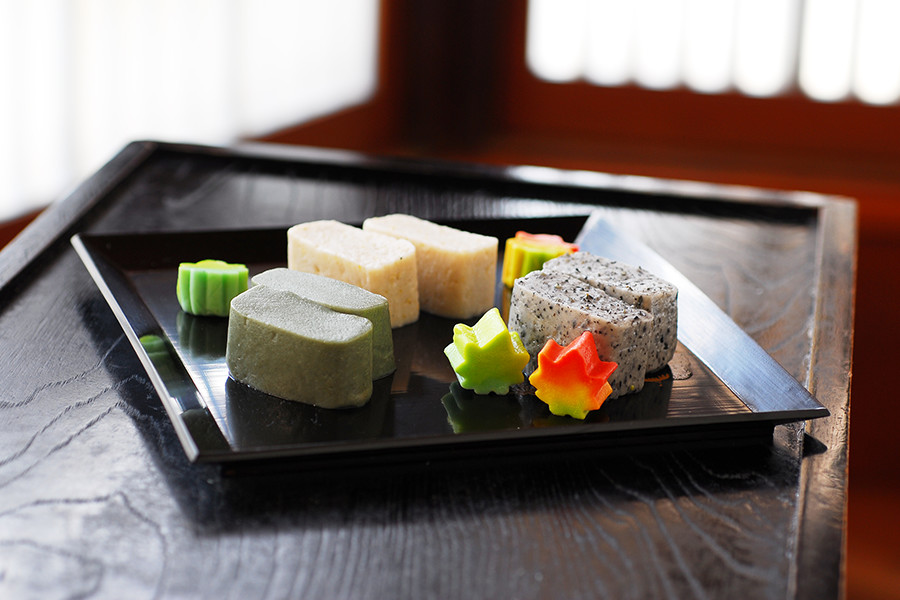
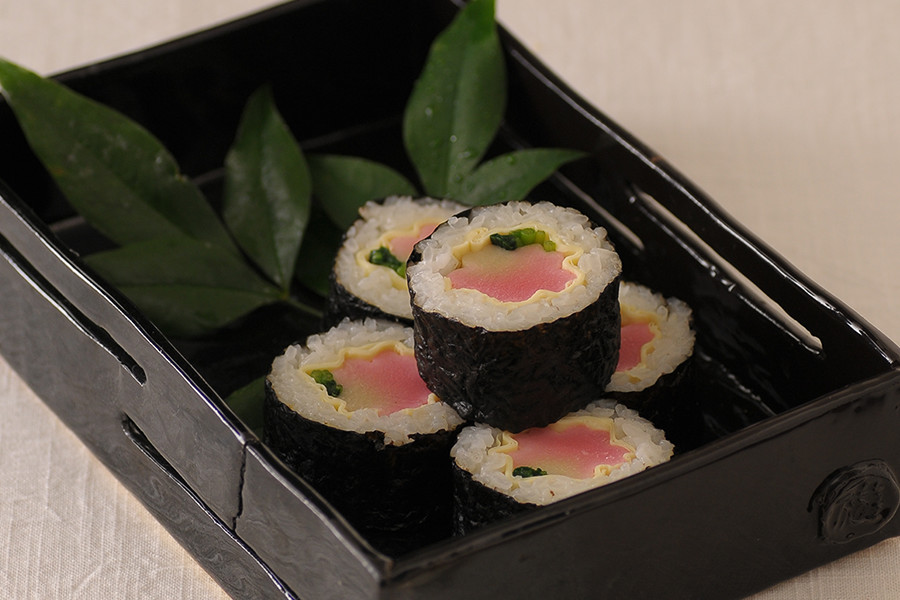
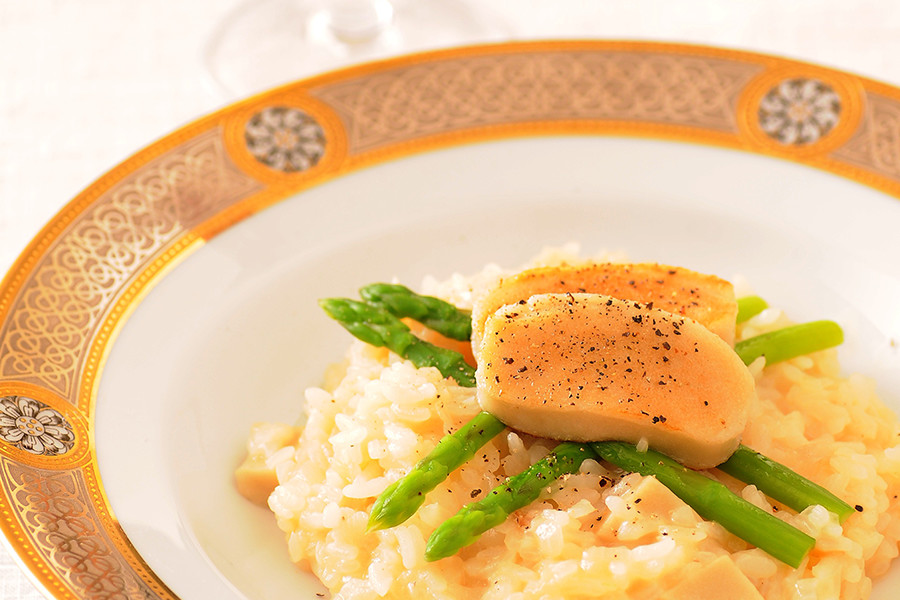
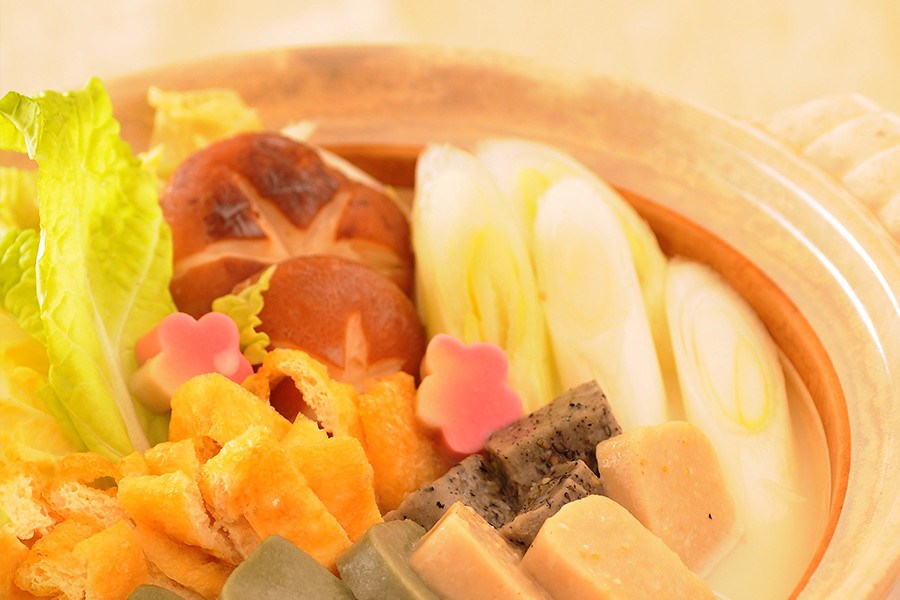
Yaki-Fu
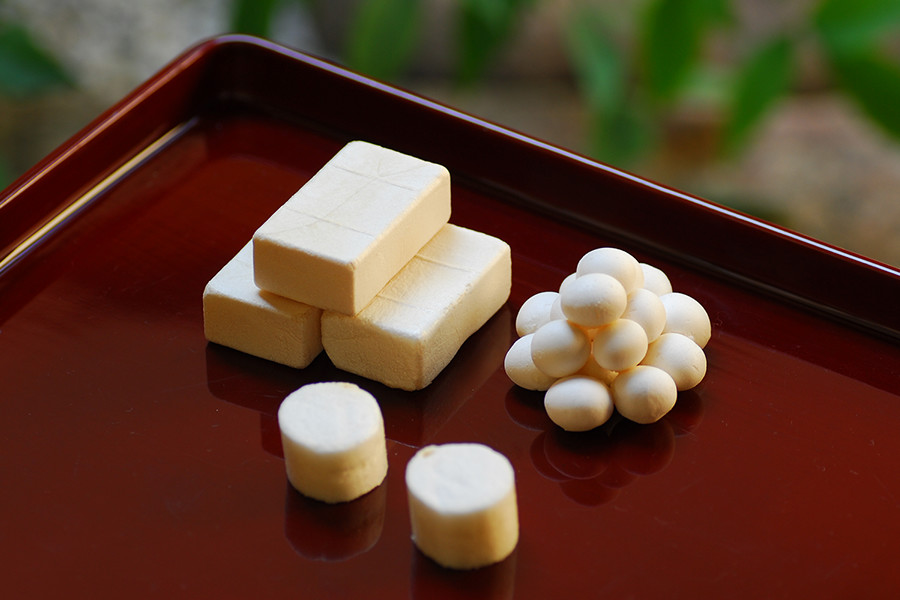
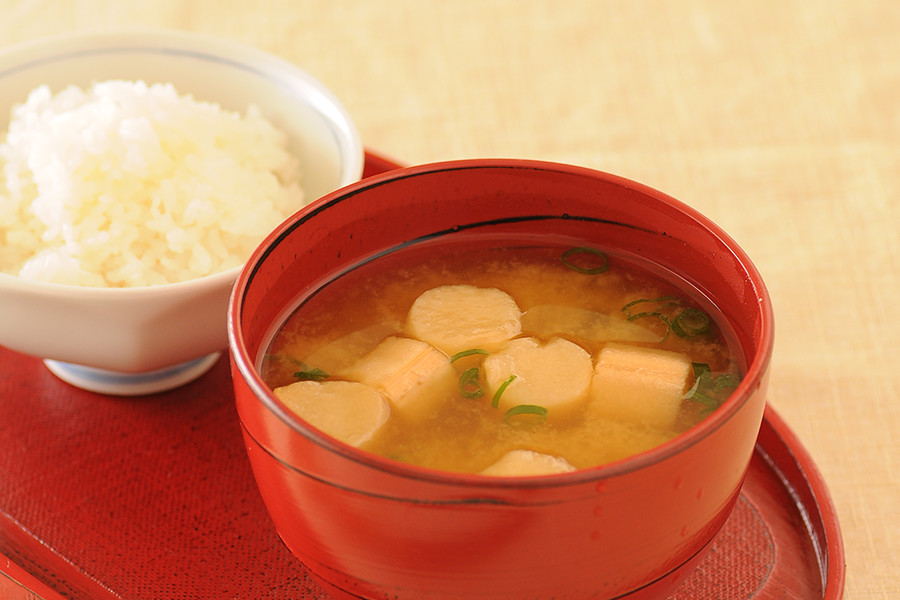
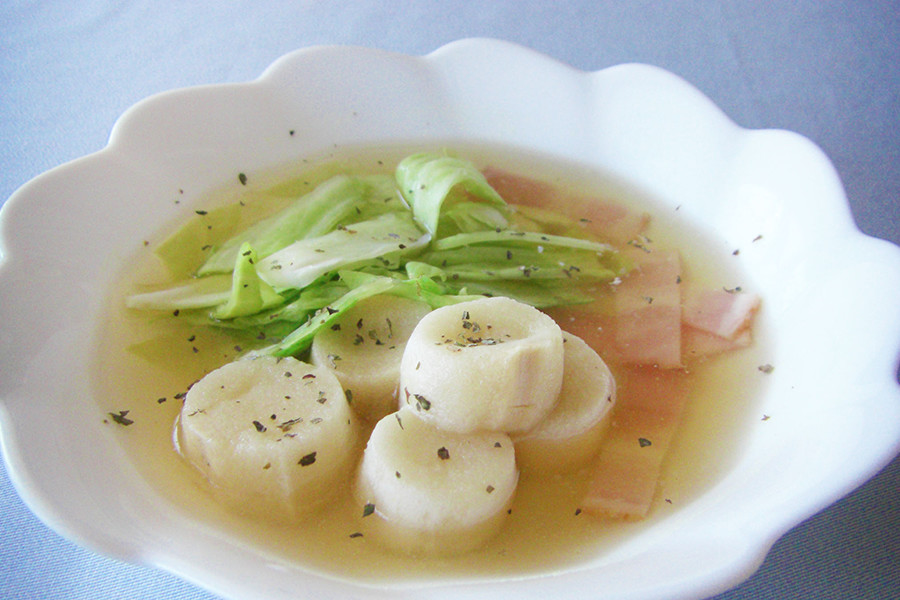
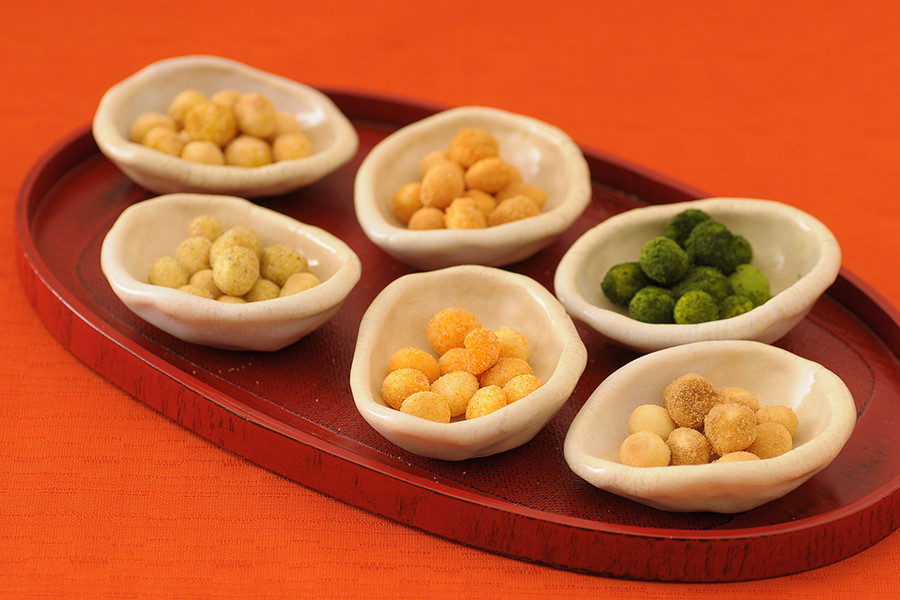
Yuba
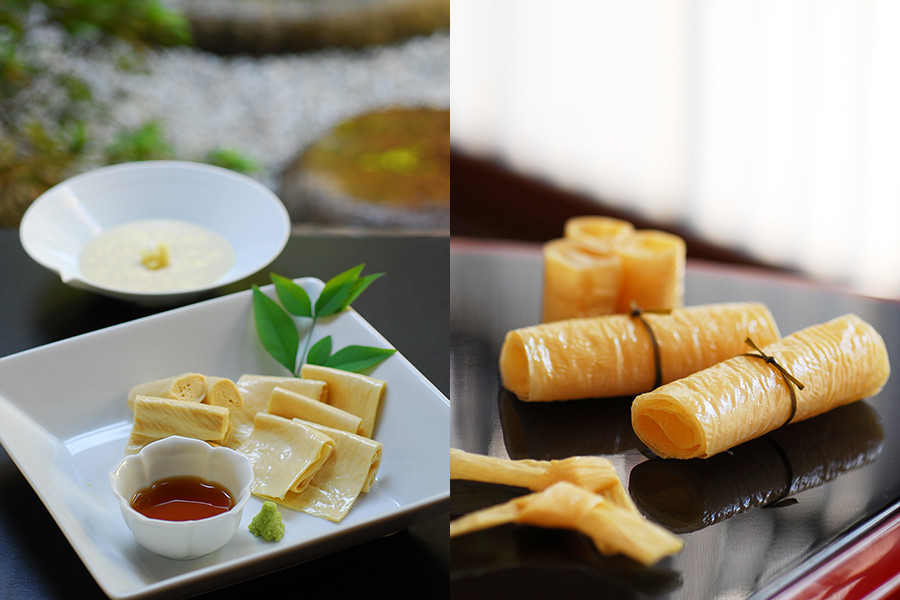
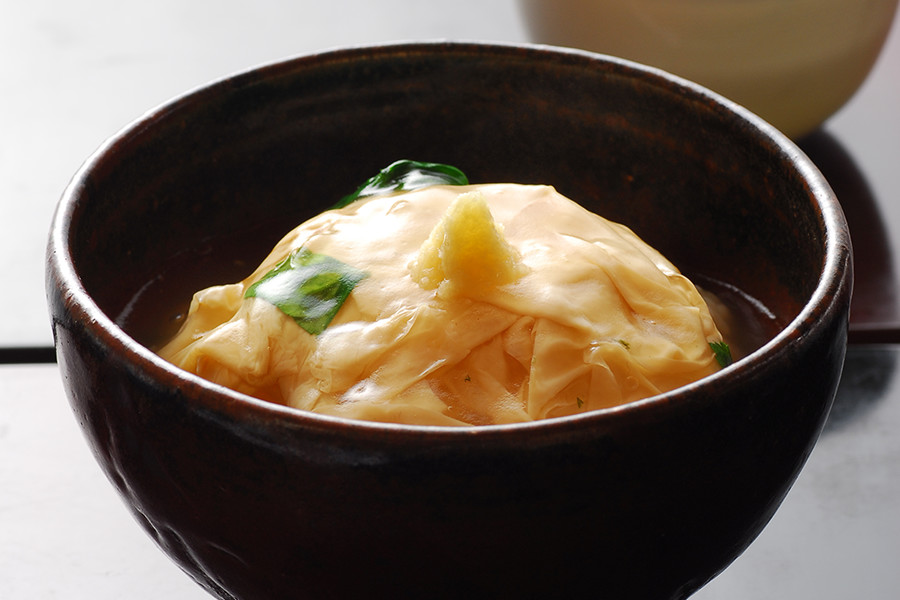
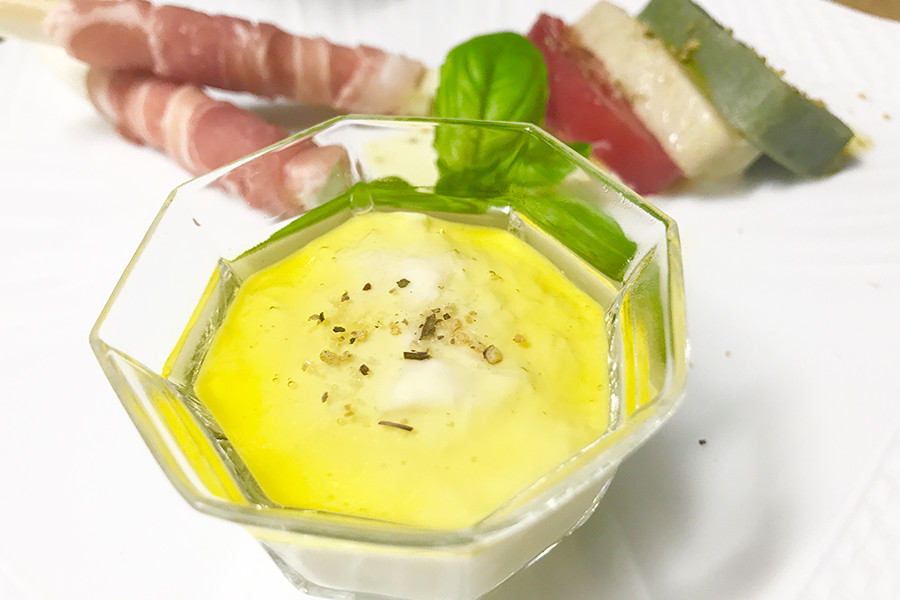
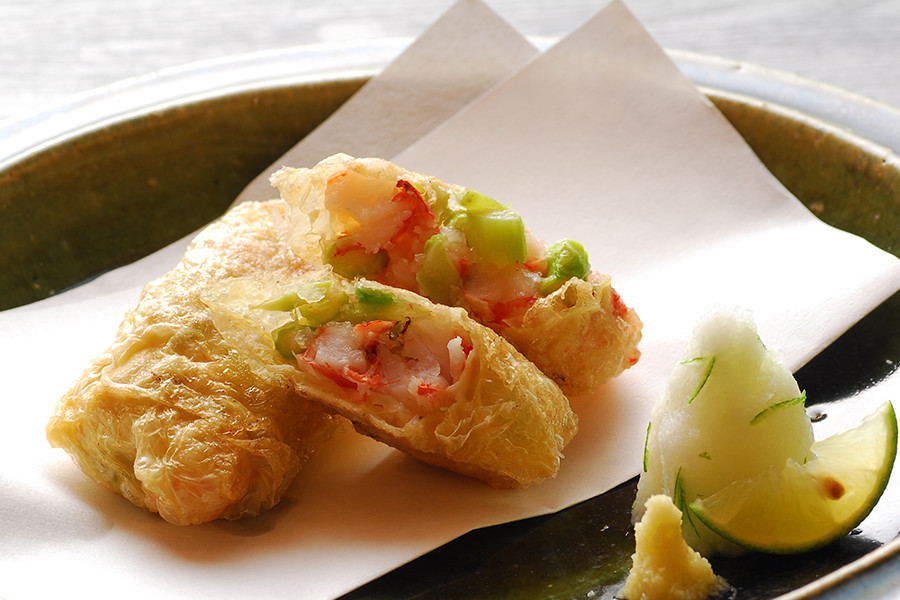
CRAFTSMAN SHIP
At Hanbey-Fu, we take pride in using select ingredients and pristine water to make high quality handmade “fu.” As “fu” is delicate in nature and easily influenced by seasonal variations in temperature and humidity, it has to be carefully crafted by a skilled and experienced artisan using all 5 senses to ensure it comes out delicious.
Whether it be “temari-fu” for its celebratory character, “saiku-fu” for its seasonal designs, or “sasamaki-fu” for its smooth texture, all our “fu” have been made through the expertise and traditional techniques of our skilled artisans.

The soft water of Kyoto is one of the main reasons we can produce such delicious “fu.”
Our Kyoto Factory uses the pure water flowing through this ancient city, while our Miyama Factory uses fresh spring water from the mountains of Tamba, an area known for its clean water and air.
What is more, both of our factories maintain high hygienic standards and use environmentally friendly production processes so you can rest at ease.

